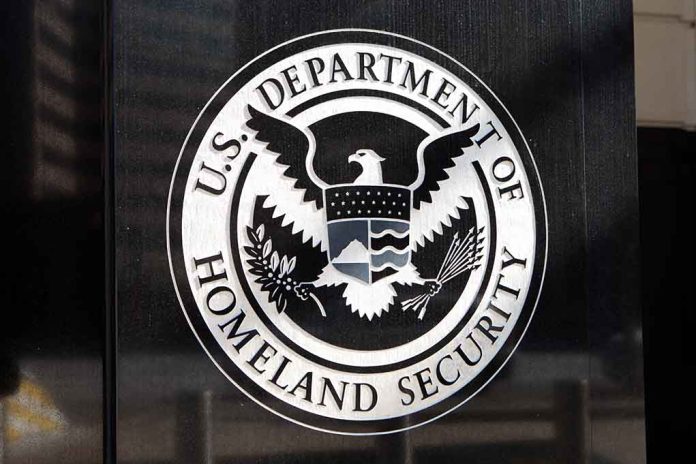
In a significant ruling, the Supreme Court has affirmed the Department of Homeland Security’s authority to revoke visas in cases of fraudulent marriages.
At a Glance
- The Supreme Court ruled unanimously, supporting DHS’s power to rescind visas in fake marriage cases.
- Justice Ketanji Brown Jackson emphasized DHS’s wide discretion with limited judicial intervention.
- Amina Bouarfa’s visa petition was revoked due to evidence of her spouse’s previous sham marriage.
- The ruling reduces judicial oversight over certain DHS discretionary decisions.
Supreme Court’s Decision
The Supreme Court has unanimously validated the Department of Homeland Security’s (DHS) authority to rescind visas obtained through fraudulent marriages. This ruling solidifies DHS’s capacity to assess and invalidate visas acquired through deception, ensuring immigration laws are enforced justly and maintaining the integrity of the visa system. Justice Ketanji Brown Jackson, delivering the opinion, highlighted congressional intent to provide the DHS secretary considerable freedom in visa matters, thus limiting judicial intrusion.
The Supreme Court unanimously ruled that the Department of Homeland Security has full discretion to revoke immigration visas without review by a judge.
Devin Dwyer has more. pic.twitter.com/oDnn5d52fG
— ABC News Live (@ABCNewsLive) December 11, 2024
The case that prompted this ruling involved Amina Bouarfa, a U.S. citizen, who applied for her spouse, Ala’a Hamayel, a Palestinian citizen. The U.S. Citizenship and Immigration Services initially approved the visa but later revoked it, citing substantial evidence of a previous sham marriage involving Mr. Hamayel. The government’s decision rested on a federal law permitting visa withdrawal “for good and sufficient cause.” Bouarfa’s argument that the decision to revoke was arbitrary did not convince the court.
Scope of DHS Authority
Justice Jackson elaborated that the DHS’s decision to revoke a visa stands as final, immune to court appeals. The federal law underpinning this ruling stipulates that federal courts lack the power to review certain discretionary actions by immigration bodies, including visa revocation in fraudulent marriage scenarios. However, initial benefits granted by Homeland Security could still be contested in court.
“In any event, when the Secretary opts to revoke a petition that he determines should not have been approved in the first place, the petitioner is not out of options.” – Justice Jackson
Ms. Bouarfa retains the right to file another application for her husband, with the option to appeal if denied. Her new petition reportedly remains pending. This decision by the Supreme Court represents a judicial consensus aligning with trends to defer to executive judgment in immigration policy implementation.
Implications and Criticisms
The decision possesses far-reaching implications for those seeking permanent legal residency, as it curtails court oversight over immigration agency choices. Critics have voiced concerns that this reduces accountability, leaving significant powers unchecked within immigration agencies. Nevertheless, the court envisions that the DHS’s discretionary power may serve to benefit visa applicants while shielding agency actions from judicial scrutiny.
This ruling resolves inconsistencies across lower courts regarding the reviewability of DHS’s actions. With broad visa-revocation powers now confirmed, DHS will likely intensify its focus on identifying and preventing immigration fraud to safeguard the immigration system’s integrity.
Sources:
- DHS Has Power to Revoke Sham Marriages Supreme Court Rules
- Supreme Court Rules Courts Don’t Have Power in Some Immigration Cases
- High Court Bars Judicial Review Of Revoked Visa Petitions










